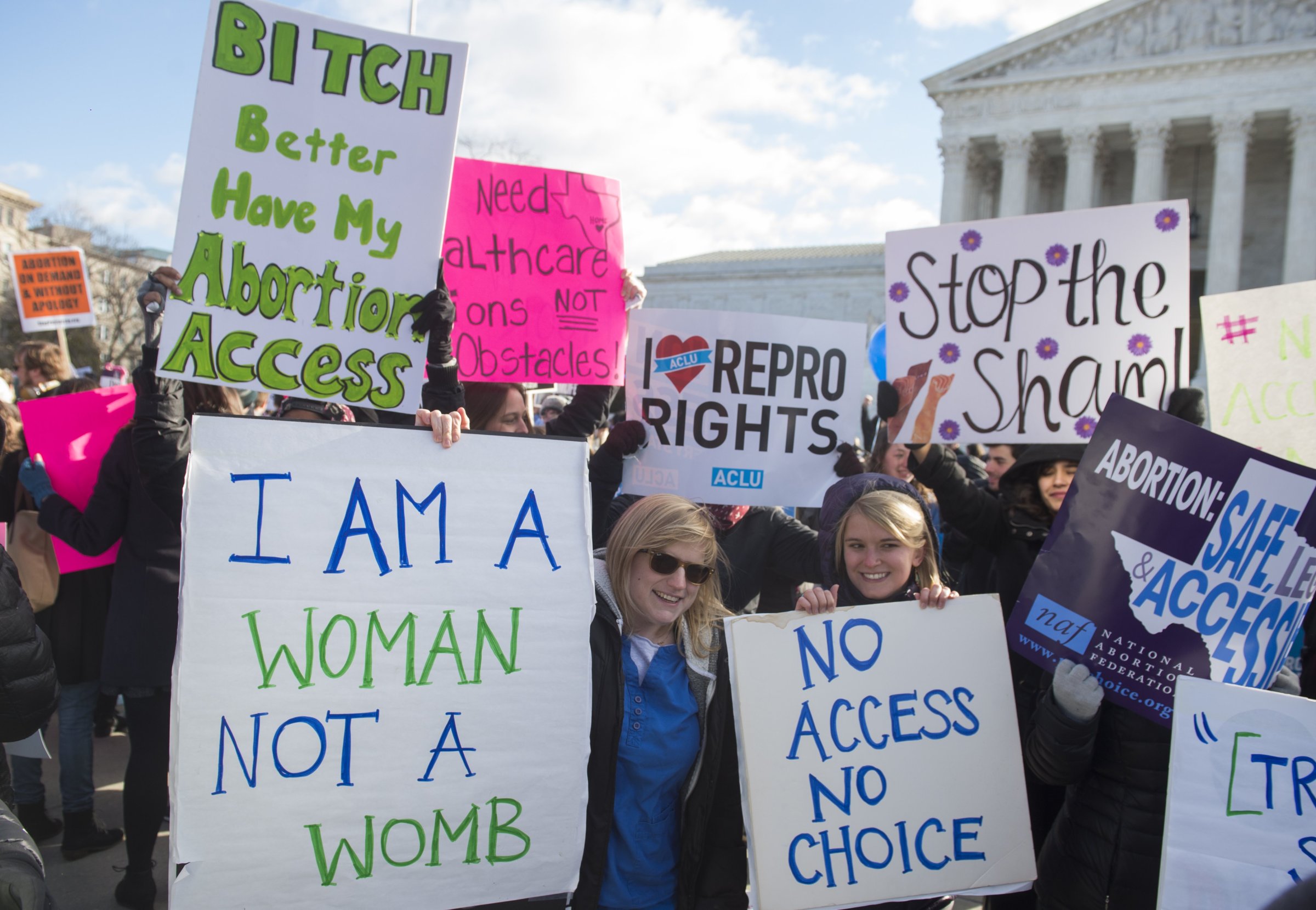
Among the many reversals possible in a new Trump administration, few are more terrifying than the anticipated appointment of a Supreme Court justice who will vote to overturn Roe v. Wade. Anti-abortion advocates have chipped away at woman’s right to choose for decades, making women’s access to safe abortions more difficult and emotionally traumatic. Women now must often hurdle past gauntlets of protesters only to get access to doctors who are often required to ask demeaning and often insulting questions. This comes even as the Supreme Court in its last major decision on abortion —Whole Woman’s Health v. Hellerstedt — upheld Roe’s validity.
But over four decades of debate have often been pitched as a “he vs. she” argument — male legislators and judges deciding what women can or cannot do. Of course, many women have lined up in the “pro-life” camp as well, with religious or moral objections to abortion. But still, the spectacle of an all-male line up testifying about religious exemptions to birth control coverage under the Affordable Care Act before Congress illustrates that debate.
Imagine, if you will, a two-by-two table, with “gender” (male and female) along one side and “pro-choice” and “pro-life” on the other. There would be women in both the pro-choice and pro-life camps. But I suspect we’d see men only on one side, in the pro-life camp. The table would be missing a fourth group: pro-choice men.
Why? Perhaps it’s that men don’t think women’s reproductive rights have anything to do with them. It wouldn’t be the first time that what are understood as ”women’s issues” turn out to also be issues that affect men. Take parental leave, for example, it’s a benefit that would be a boon to many men, too, but for too long it’s been a woman’s issue.
And it wouldn’t be the first time in history that birth control itself was framed entirely as a women’s issue. When Margaret Sanger founded the American Birth Control League in 1921, which would later become Planned Parenthood, she wanted women to have access to safe and reliable birth control so they could be both workers and mothers. But even then, men benefitted from being able to more easily control the size of their family.
This needs to change. Stated most simply, men are stakeholders in the debate about women’s reproductive rights. Consider the following examples:
Women’s reproductive rights have everything to do with men, and offer almost as much freedom to us as they do to women. That’s an important reason why we need to stand with women in this fight. Not only because reproductive freedom is right and fair, but because it is also in our best interests.
Michael Kimmel is Distinguished Professor of Sociology at Stony Brook University.
MOTTO hosts provocative voices and influencers from various spheres. We welcome outside contributions. Opinions expressed do not necessarily reflect the views of our editors.
More Must-Reads From TIME
- The 100 Most Influential People of 2024
- Coco Gauff Is Playing for Herself Now
- Scenes From Pro-Palestinian Encampments Across U.S. Universities
- 6 Compliments That Land Every Time
- If You're Dating Right Now , You're Brave: Column
- The AI That Could Heal a Divided Internet
- Fallout Is a Brilliant Model for the Future of Video Game Adaptations
- Want Weekly Recs on What to Watch, Read, and More? Sign Up for Worth Your Time
Contact us at letters@time.com